The is made with an 80cr13 core material with softer stainless steel 10cr17 cladding. The knife also comes with a rosewood handle with grooves for extra grip. Now let me get something clear this knife is not a traditional All-purpose cleaver but a vegetable cleaver. It does not mean it is only for vegetables. You can use it on meat and fish too, as long as it is boneless meat.
Core Material & Cladding
80cr13 is a high-carbon core material; therefore, the knife can take a sharper edge while maintaining good edge retention. The 10cr17 outer cladding helps by adding toughness and corrosion resistance. Using a three-layer cladding protects the middle core from constant impact damage and prevents it from breaking.
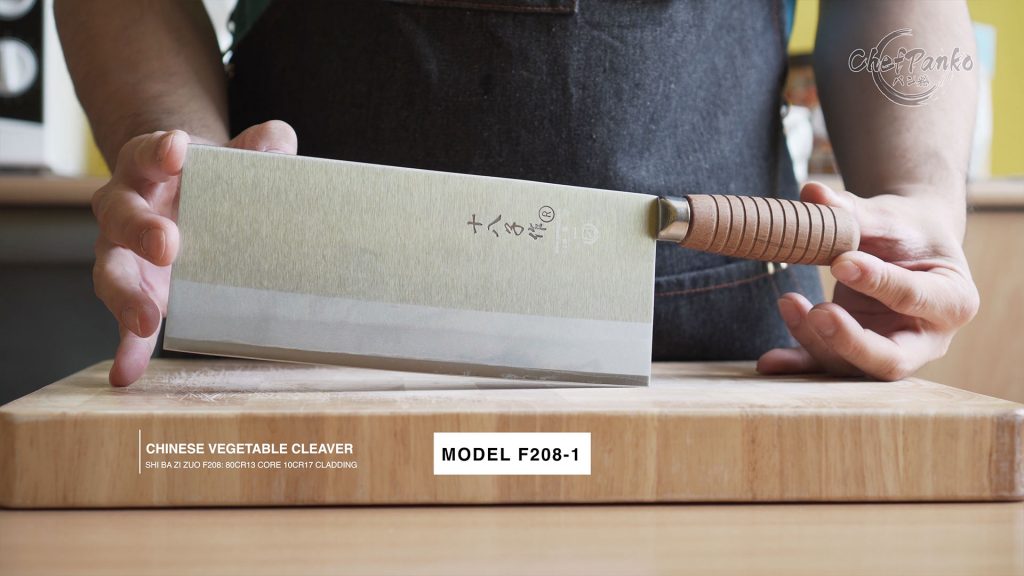
Knife Rockwell Hardness
I find it strange that the seller specifies the knife with a Rockwell of 55 to 57. But During my testings, it feels and performs like a knife with a Rockwell of 58 at the minimum. Therefore with regular honing sessions, you can get away with 3/4 months before needing a whetstone touch-up.
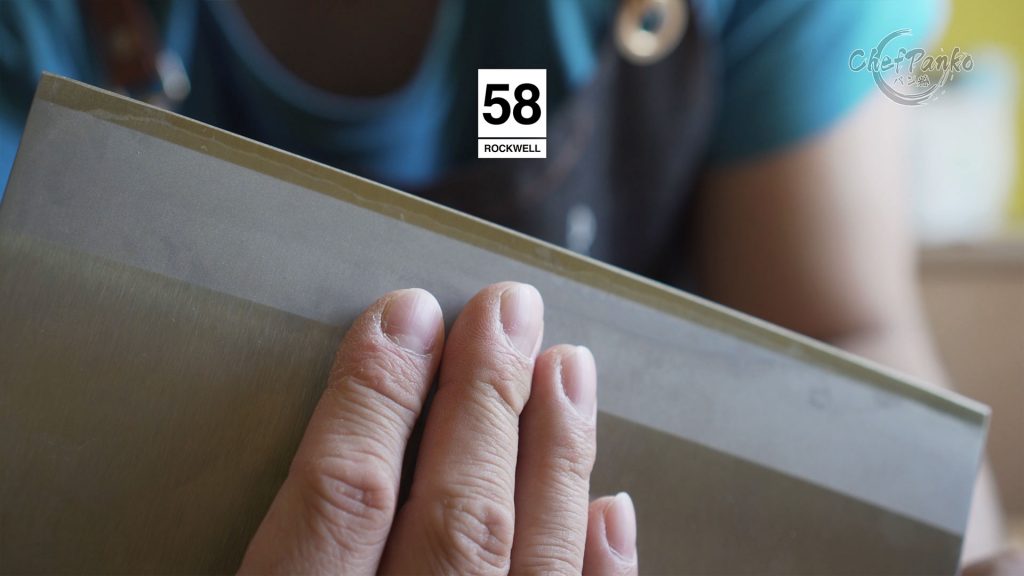
Blade aesthetic and food release
They included a non-stick coating, which helps break down water content, and the food will stick less on your blade. I also like the look of the debossed logo. It is not deep and nicely smoothed out. The finish on the blade is also very nice to see. It is what I love to see on more knives. Since it masks the scratches of regular use, the knife slowly builds up a different aesthetic over time.

Blade profile
The Shi Ba Zi F208 has a slight belly in the middle, but the front and the heel have a 90-degree angle great for up and forward motions.
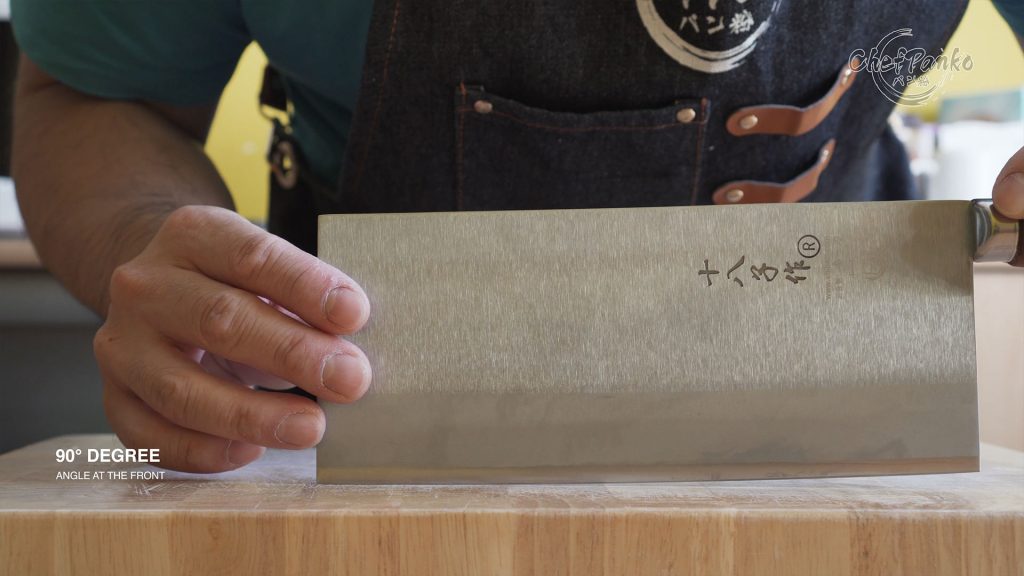

Weight and Spine tapering
Once you grab the knife, you will immediately notice that the knife is quite light for a Chinese cleaver with a weight of 382 grams. And that is for their biggest version ”F208-1” with a blade length of 23 centimeters. The spine thickness is 2.3mm, but it feels thinner since they thinned the blade a lot under the spine. The front profile taper is very thin, but the heel area is slightly thicker than the front.


Knife balance point
The balance point is at the logo, and with the pinch grip at the metal cap, the knife would be front-heavy. It is what I expect and wants from a cleaver-style knife. Since we use the front part to slice and use the heel for thought food, this knife has no distal spine taper, but the knife profile taper is extremely well done.
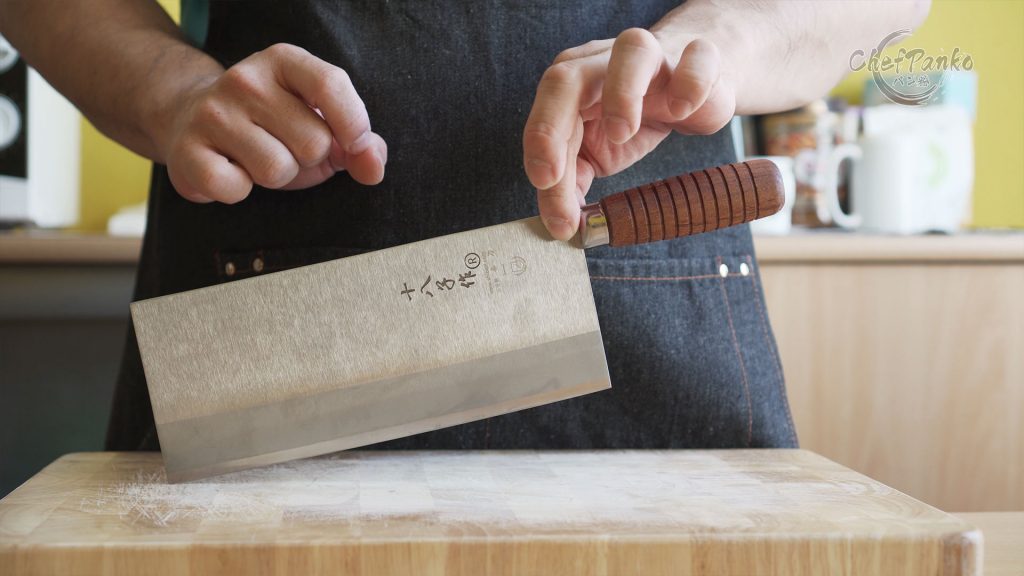
Knife handle
Now on to the handle of the Shi Ba Shi F208 knife, they are using a rosewood handle with grooves on the handle. The grooves work extremely well with adding extra grip. The knife grooves were slightly noticeable and sharp out of the box. But after multiple times of use and washing, the grooves smoothed out nicely and became less noticeable during each use. Eventually, it will be smoothed out enough that you won’t notice the grooves any more.
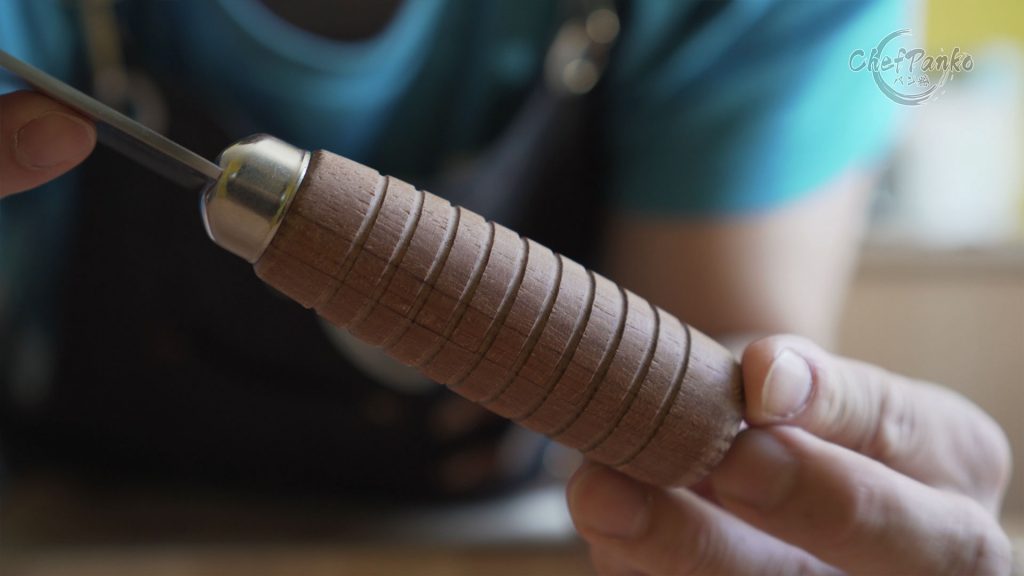
Handle Maintenance
I would advise you to oil the handle once you get it, out of the box. And when the handle starts to become dry, I would apply oil from time to time. Do not forget to regularly oil the handle since this prevents the wood from drying out and splitting from temperature swings. And you also build up a water-resistant layer over the rosewood handle by doing it regularly.
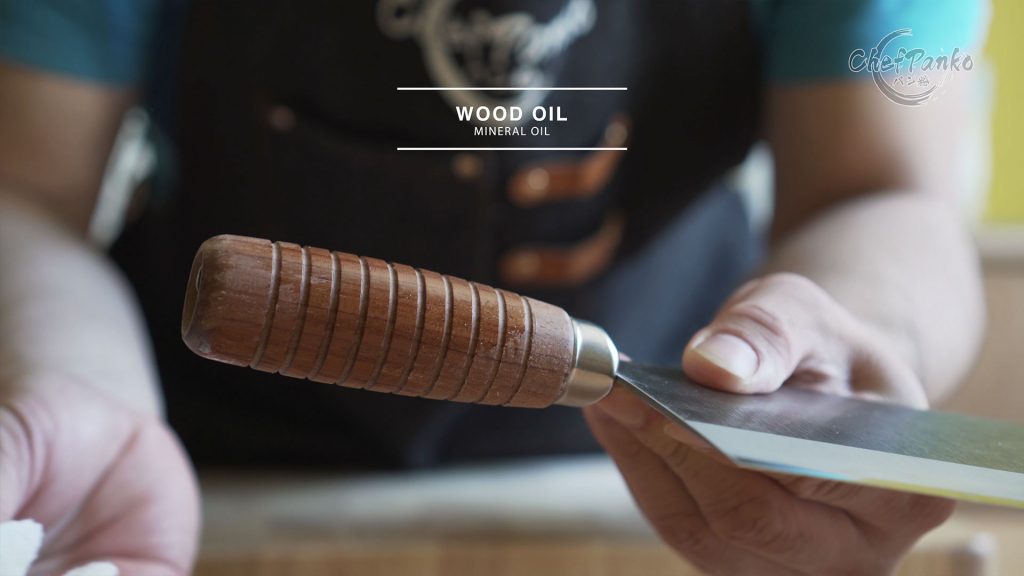
Handle Design and Comfort
There are two things I want to point out with the handle design. The front cap works extremely well, and they have a well-thought design. Not only helps it from preventing any water damage to the wooden handle, but it also sits very comfortably on your index finger and thumb. They also have added a wired hidden full-tang handle, which adds extra durability and prevents the knife from coming loose. You can see the wired steel at the endcap, which adds a rustic aesthetic to the knife.

What you can’t do with this knife
Do not go through frozen food, chop through bones, chop through anything hard with this knife or twist the knife since this can cause chipping. It is a ”vegetable” or a Chinese ”slicer” cleaver, meaning it is suitable for boneless meat and vegetables. Smashing garlic etc. should be fine using the spine to tenderize meat too.
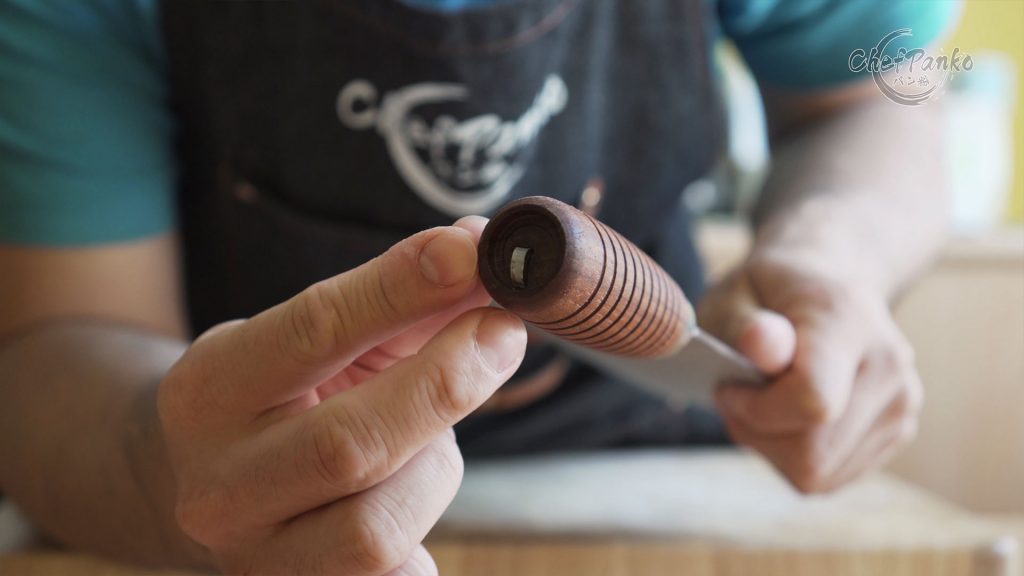
Conclusion
There are a few things that Shi Ba Shi could improve. The first thing is to remove the annoying stickers. Out of the box, sharpness could have been better, but this is not a big deal since I encourage everyone to learn to sharpen themself. For the rest, I would recommend this knife to anyone. If you are looking for a Chinese vegetable cleaver, look no further!
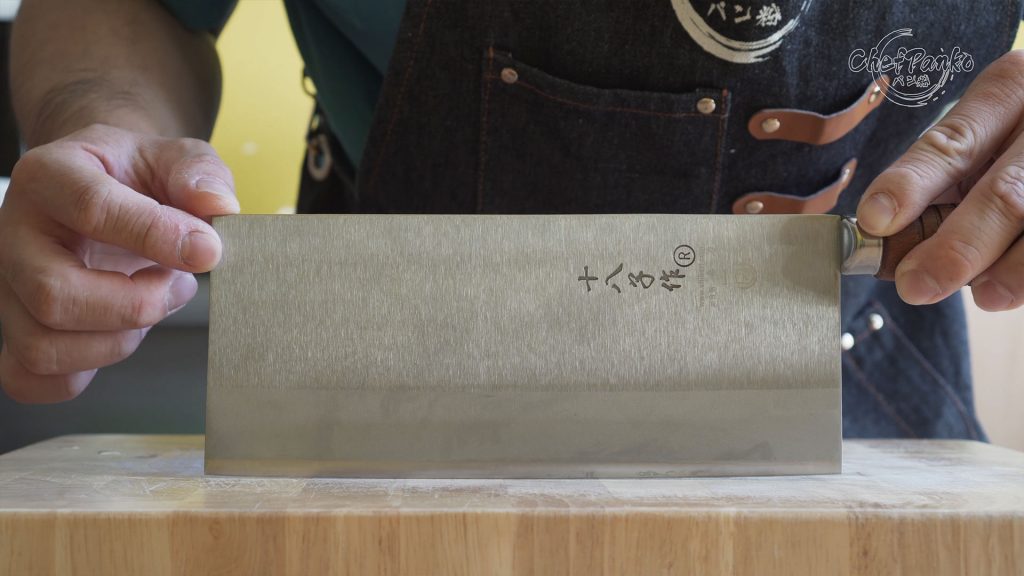
Two Versions F208-1 and F208-2
They offer two versions. As a home cook, I recommend the smaller version. Go for the, and for cooks that work in a Chinese restaurant. The longer versions should suit you better. And my advice is to go for the F208-1. The key difference is the length and weight between those two. Of course, this knife comes with all the benefits that you would expect from a Chinese cleaver. The blade width makes it great for scooping, flattening, crushing, and more. You will also have plenty of knuckle clearance and a great knuckle guide. And the spine can be used as a meat tenderizer.
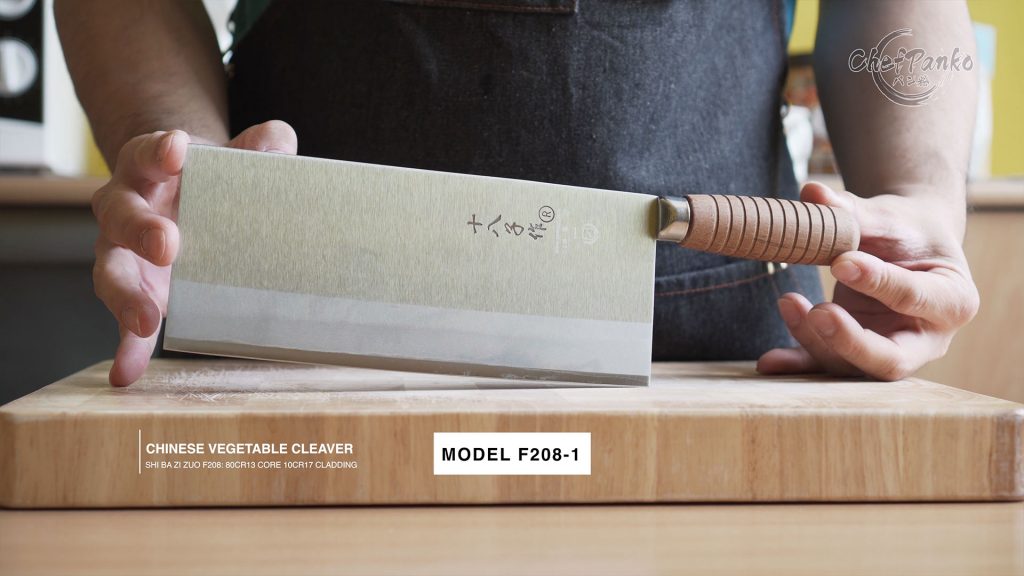
🛒 S H O P
For a Chinese vegetable cleaver, I recommend
(they have 2 sizes I recommend thefor home use that is the shorter version)
Official Shi Ba Zi Zuo Amazon store
Amazon Version F208-1 (9 inches)
8inch version F208-2 (my Recommendation)
Another Chinese Vegetable Cleaver I like is from Dengjia. This one is mainly suitable for home use. Sharper performance but less durable than the F208.
Manufacturers Name:
🛒S H O P:
My Recommendation for a ”Dual”/”all-purpose” Chinese Cleaver is the Shi Ba Zior P04.
(*Make sure you select the correct one since P01 and P02 are very heavy and big and mainly used in restaurants):
Note: The above version is a ”Dual Purpose” also known as an ”All-Purpose” Chinese cleaver. It means that you can use the heel to go through smaller bones like a chicken bone or duck carcass.
A review of the P01 can be found here.
▶ If you want to know what knife you should buy you can read the following article ''Choosing your knife''. ▶ On my youtube channel, I have reviewed a lot of different knives. You can watch the playlist by clicking here. ▶ Click here, if you want to search for other kitchen knives on: Amazon. ▶ , if you want to search for other Chinese knives on . ▶ Check out my gear on Kit: https://kit.co/ChefPanko ▶ Check out my recommendation on Amazon: https://www.amazon.com/shop/chefpanko Full Disclosure: If you purchase from these links I get a small commission that goes towards supporting the channel and website. As an Amazon Associate, I earn from qualifying purchases ▶ If you have any questions about Japanese knives made in China or about some of the brands feel free to ask it in the comment section below. Thank you for your support and feedback. ▶ Want to work with me? Please use the contact form by clicking here.

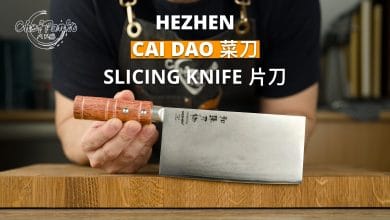
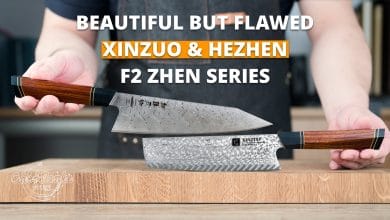
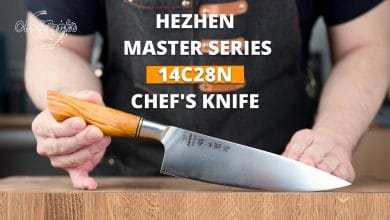

Thank you for your review!
Thank you for the comment, I really appreciate it 🙂